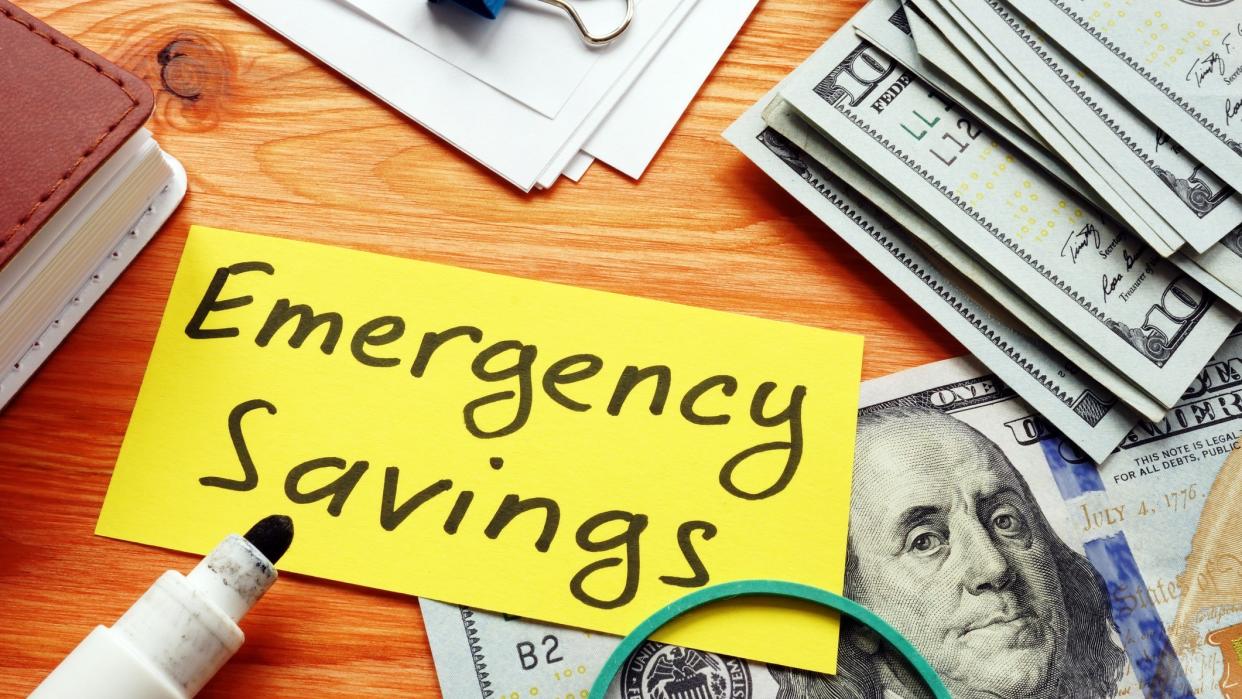9 Costs You Should Never Cut During Tough Financial Times

After the holidays and at the start of the new year, reckoning with your finances can mean taking a hard look at how much more money has gone out than has come in. Tightening your finances may be a necessary step, or simply a way to get ahead and save toward financial goals for the coming year.
Related: The Top Expenses To Cut From Your Budget in 2021
When it comes time to cutting expenses, other than your necessities like housing, food and utilities, you may be stumped on where to start and stop. While there may be some obvious places you can trim back, here are nine expenses experts recommend you don’t cut, for reasons ranging from health and safety to allowing yourself a little entertainment.
Last updated: Apr. 12, 2021

Health Insurance
While you might be tempted to whittle down the often high cost of health insurance during tough financial times, doing so is not a good idea. You might save money in the short term, but it could cost you in the long term; studies have shown that 2/3 of bankruptcies are filed over medical expenses. If something should happen to you or a family member when uninsured, the medical costs could be astronomical.
Instead, consider changing plans to one that might cost you less money every month. Though this may mean you have a high deductible, at least you know the highest amount you’ll have to pay in a worst-case scenario, which is still cheaper than the average cost of a medical emergency.
Read More: New Ways To Protect Yourself From Surprise Medical Bills

Car Insurance
Car insurance can seem like an unnecessary expense, especially if you’re a good driver with an impeccable record. However, not only is car insurance mandated, what you’d have to pay out of pocket if you did get into an accident in both physical damages to your and/or another’s vehicle, and even bodily injury, would be so much more than what you pay every month for insurance. If you aren’t driving as much during the pandemic, your insurer might be able to offer you a reduced rate.
Find Out: How To Negotiate Your Auto Insurance Rates When You’re Driving Less

Internet
While you can’t call the internet a necessity, per se, now more than ever, the internet has become a lifeline. Moreover, we are living in a digital age regardless or pandemic, so not having access to the internet can impair such things as banking, staying in touch with distant friends and family, and enabling online shopping.
If your budget allows, it’s worth holding onto your internet. What you can do, if you’re spending more than you like, is negotiate with either your provider or a new one for a better rate.
Did You Know: The Most and Least Expensive States To Work From Home

Cellphone
Many people have begun to get rid of landlines in favor of cellphones. According to a study by The National Interest, only about 40% of American households still have landlines. But even if you still have a landline, cellphones are now so much more than just ways to communicate — you can use it to do your banking, shopping, reading, music listening and so on. What you can do, if times are tight, is negotiate with your service for a lower plan or consider switching to a new service.
Read More: 7 Tips and Tricks To Cut Your Phone and Cable Bill in Half

Debt Repayment
Debt is an expense that unfortunately tends to grow if you don’t pay it — most credit cards and loans have an interest rate that accumulates quickly. Making a minimum payment that doesn’t touch the interest rate will only end up biting you in the long run when your debt swells to an unmanageable level. Work on paying down those credit cards with the highest interest rate first.
Find Out: 11 Steps for Paying Off Credit Card Debt in 2021

Streaming Services
When finances get tight, we often look at our leisure and entertainment spending as the first places to cut. But during a global pandemic, when most of us are spending vastly more time in our homes, you might not have to give up everything that brings you pleasure if your budget allows. If you have multiple subscriptions, such as Netflix, Hulu, Disney+ and Amazon Prime, it’s time to hone your focus to the one that brings you the most at the best value.
At prices ranging from $4.99 to $14.99 per month, these services can add up when you have multiples. Unlike cable, which usually requires a length of time commitment, most streaming services are available on a quit anytime basis. So you can also play it month to month to see what you can afford.
Related: Why Streaming Services Will Still Be Worth the Extra Expense in 2021

Healthy Food
Prioritizing healthy eating can sometimes be hard when finances are tight. While it’s OK to purchase the slightly less healthy version of products you eat regularly, there are ways to afford healthy food all year. For instance, you might not be able to afford all organic foods, but you can focus on purchasing those organic foods that fall on the Environmental Working Group’s “Dirty Dozen,” such as strawberries and spinach, rather than every single item.
Other tips include using coupons and shopping sales, buying in bulk and limiting waste by making sure you eat up all leftovers.
Read More: 10 Health Foods That Are Worth the Price

Mental Health
In tough financial times, you can easily convince yourself that you don’t need things you may have once considered essential, such as mental health care. But if your budget allows, you really want to consider hanging on to these services so that you don’t struggle unnecessarily. And while the cost of therapy can be high and isn’t always covered by insurance, there are now more affordable ways to get therapy than ever before.
Apps and services like Talkspace and BetterHelp offer therapy at significantly lower rates than the average marriage and family therapist. Many of these offer text-based and chat-based interfaces, as well.
Find Out: How Much Does a Telehealth Visit Cost?

Emergency Fund
It might seem silly to keep paying into an emergency fund when you’re coming up against the edge of a financial emergency, but if you have any money still left to save, then things may not be as tight as you think. An emergency fund can save the day in situations ranging from sudden unemployment to a car or home repair emergency. These are expenses that typically can’t wait. Even just $10 a month toward your emergency fund is $120 at the end of a year.
More From GOBankingRates
This article originally appeared on GOBankingRates.com: 9 Costs You Should Never Cut During Tough Financial Times
